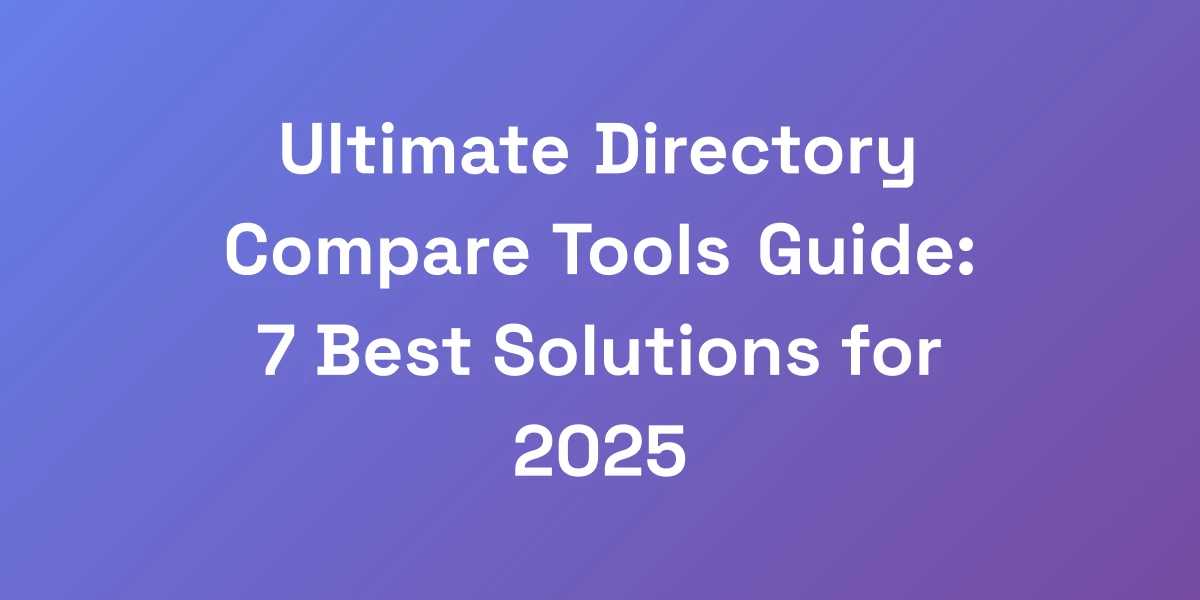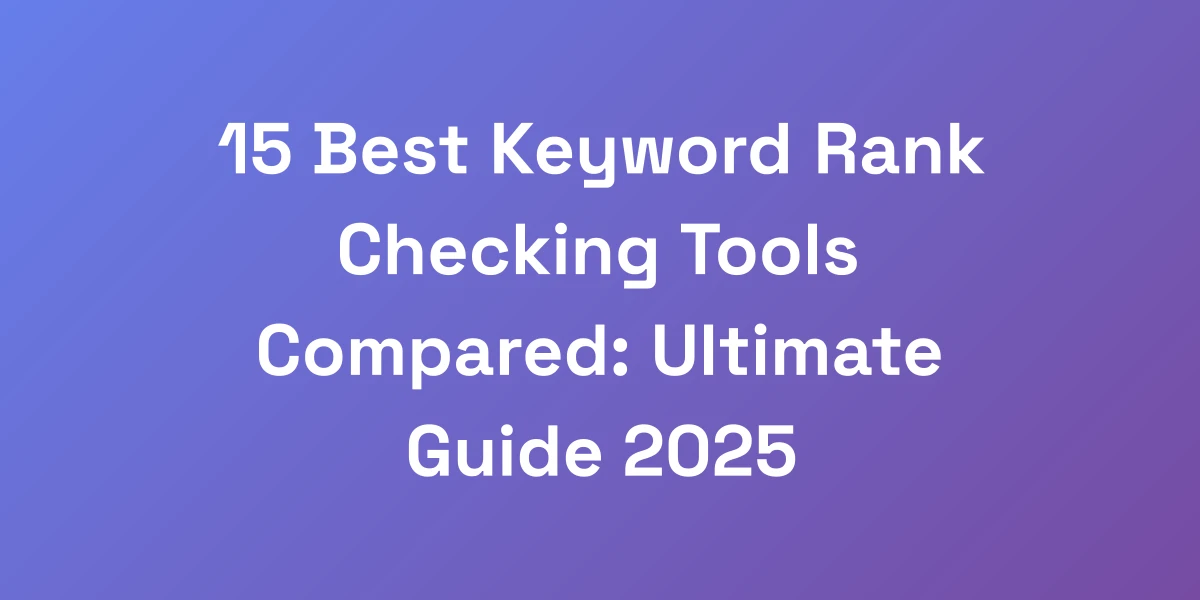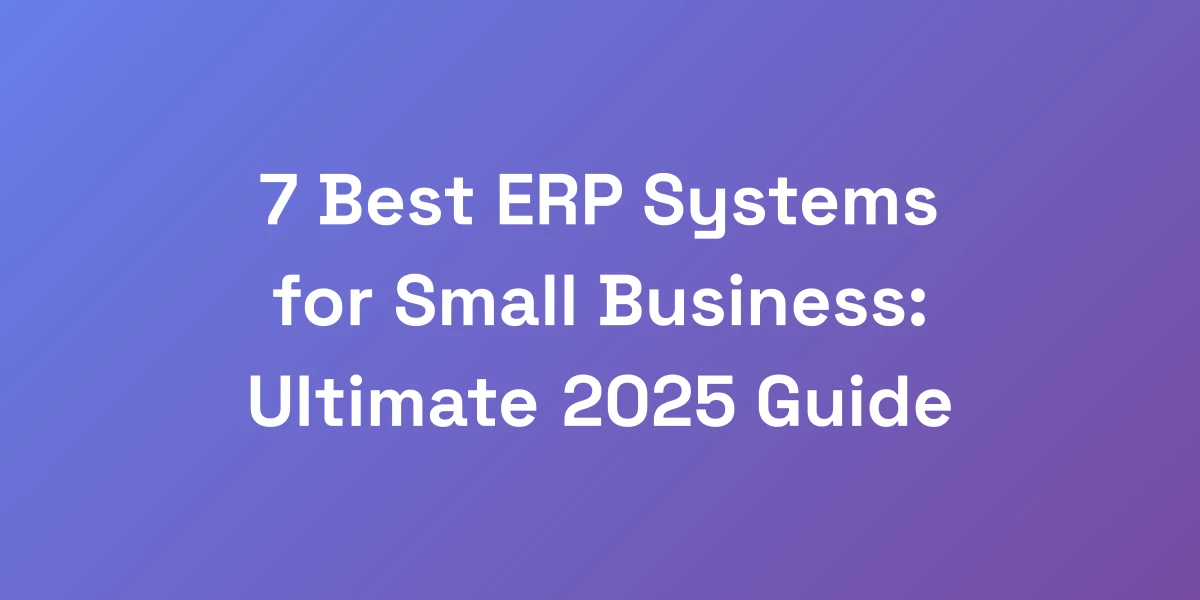
Ultimate Directory Compare Tools Guide: 7 Best Solutions for 2025
Apr 6, 2025 | By zishansami102@gmail.com
Why Directory Comparison Tools Are Your Secret Weapon
Let us cut to the chase: wasting hours manually checking folders is killing your productivity.
We’ve watched as countless entrepreneurs and developers drain precious time trying to spot differences between directories. Why? Because they haven’t automated this process. Whether you’re managing backups, syncing project files, or maintaining server directories, manual comparison tools are a bottleneck.
The reality is stark. Imagine saving hundreds of hours annually. That’s time you could reinvest into scaling your business or developing new features. The right directory comparison tool is not just a convenience—it’s a necessity for anyone serious about efficiency and growth.
But let’s unpack this. What makes directory comparison tools so indispensable? And how can they transform your workflow from tedious to seamless?
The Hidden Cost of Manual Directory Management
Manual directory management might seem straightforward, but let’s dig deeper. Each manual comparison isn’t just a task; it’s a costly investment of time and energy.
- Time Consumption: Hours spent sifting through folders could be better used on strategic initiatives.
- Human Error: Missed differences can lead to data inconsistencies, affecting your operations.
- Scalability Issues: As your data grows, manual comparisons become exponentially harder.
Think about it: a small mistake in directory management can cascade into significant issues down the line. The hidden cost here is not just time, but the potential for errors that could derail your projects.
Common Directory Comparison Scenarios
Directory comparison tools shine in various scenarios. Let’s explore some common use cases where they make a massive difference.
- Backup Management: Ensuring your backups are up-to-date and accurate is crucial. Automated tools make this process foolproof.
- File Synchronization: Keeping files consistent across multiple devices or servers is a breeze with the right tool.
- Server Maintenance: Regularly comparing directories on servers helps in identifying and resolving discrepancies swiftly.
Each of these scenarios benefits from automation, reducing the manual load and increasing reliability.
Key Features That Actually Matter
Not all directory comparison tools are created equal. So, what features should you prioritize to get the most bang for your buck?
- Accuracy: The tool must reliably detect even the slightest differences.
- Speed: Fast comparisons save time, especially with large directories.
- Automation Capabilities: Scheduling and SEO automation can significantly boost productivity.
- User-Friendly Interface: An intuitive interface reduces the learning curve and enhances usability.
- Integration Options: Seamless integration with SEO tools for agencies adds immense value.
Focusing on these features ensures that you choose a tool that not only meets your current needs but also adapts to future requirements.
The ROI of Automated Directory Comparison
Investing in automated directory comparison tools isn’t just a cost—it’s an investment with tangible returns.
- Time Savings: Automating comparisons frees up hours that can be redirected to more strategic tasks.
- Increased Accuracy: Automation minimizes human error, ensuring data integrity.
- Scalability: Automated tools handle growth effortlessly, supporting larger directories without additional manpower.
The return on investment is clear. By streamlining directory comparisons, you enhance efficiency, reduce errors, and position your operations for scalable growth.
Understanding Different Comparison Methods
Directory comparison isn’t one-size-fits-all. Let’s break down the various methods and how they cater to different needs.
- Binary Comparison: Compares files byte-by-byte, ensuring exact matches. Ideal for critical data integrity checks.
- Timestamp Comparison: Uses file modification dates to identify changes. Faster but less precise.
- Checksum Comparison: Utilizes hash values to detect differences. Balances speed and accuracy.
Choosing the right comparison method depends on your specific requirements—whether you prioritize speed, accuracy, or a balance of both.
Free Directory Comparison Tools That Actually Deliver
We’ve all been there—you need a solution, but budget constraints are real. Some free tools actually outperform their paid counterparts. We’ve tested dozens, and we’re here to spotlight the ones that deliver true value without costing a dime.
These tools aren’t just basic utilities; they’re robust solutions capable of handling complex comparison tasks. The key is leveraging each tool’s strengths based on your specific needs, and we’ll break that down for you.
WinMerge: The Open-Source Champion
WinMerge stands out as a top-tier open-source directory comparison tool. It’s feature-rich and community-supported, making it a reliable choice for many.
- Ease of Use: Intuitive interface that makes navigation a breeze.
- Customization: Highly customizable with plugins and extensions.
- Integration: Seamlessly integrates with other tools, enhancing functionality.
Whether you’re a developer or a business owner, WinMerge’s balance of power and simplicity makes it a go-to option.
FreeFileSync: Sync Capabilities on Steroids
FreeFileSync isn’t just another comparison tool—it’s a full-fledged synchronization powerhouse. Perfect for those who need more than just basic comparisons.
- Real-Time Sync: Keeps your directories updated in real-time, ensuring consistency.
- User-Friendly Interface: Drag-and-drop functionality simplifies the process.
- Cross-Platform: Available on Windows, macOS, and Linux, catering to diverse environments.
If synchronization is a priority, FreeFileSync delivers robust performance without the price tag.
DiffMerge: Visual Comparison Made Simple
DiffMerge excels in providing visual comparisons, making it easier to spot differences at a glance.
- Visual Interface: Side-by-side comparisons highlight changes clearly.
- Merge Capabilities: Simplifies the process of merging changes.
- Customizable Views: Tailor the interface to fit your workflow.
For those who prefer a visual approach, DiffMerge offers an effective and free solution.
Beyond Compare Trial: Premium Features for Free
Beyond Compare is a renowned name in directory comparison, and while it’s a paid tool, the trial version offers a glimpse into its premium features.
- Comprehensive Features: Access to most features during the trial period.
- Advanced Comparisons: Handles complex comparison tasks with ease.
- Export Options: Easily export comparison results for reporting.
Taking advantage of the trial period can provide valuable insights into whether Beyond Compare is worth the investment for your needs.
Command-Line Solutions for Power Users
For those who prefer a hands-on approach, command-line directory comparison tools offer unparalleled flexibility and control.
- Flexibility: Customize scripts to fit specific comparison criteria.
- Automation: Integrate seamlessly with other automated workflows.
- Efficiency: Lightweight and fast, ideal for handling large directories.
Power users and developers will appreciate the depth and control that command-line solutions provide, making them a valuable addition to any toolkit.
Premium Directory Comparison Tools Worth Every Penny
Let’s be honest: 99% of premium directory comparison tools aren’t worth your money. But that elusive 1%? They’re game-changers. After thousands of tests, we’ve pinpointed the premium tools that justify their cost by delivering exceptional value.
These tools go beyond what free options offer, providing features that can fundamentally transform how you manage and compare directories.
Beyond Compare: The Industry Standard
Beyond Compare continues to reign supreme as the industry standard for directory comparison. Its comprehensive feature set makes it a favorite among professionals.
- Versatility: Supports a wide range of file types and comparison scenarios.
- Advanced Merge: Powerful merging capabilities for complex tasks.
- Customizability: Highly customizable to fit any workflow.
Beyond Compare’s robust features and reliability make it a worthy investment for those who need top-tier directory comparison capabilities.
ExamDiff Pro: Advanced Features for Developers
ExamDiff Pro is tailored for developers, offering advanced features that cater to the complexities of software development environments.
- Syntax Highlighting: Makes it easier to compare code files with clarity.
- Integration: Seamlessly integrates with popular development tools.
- Automation: Supports automated comparison tasks to boost productivity.
For developers needing precise and advanced comparison tools, ExamDiff Pro provides the necessary features to enhance their workflow.
Folder Compare Pro: Enterprise-Grade Solutions
Folder Compare Pro is designed for enterprise environments, offering scalability and advanced features that meet the demands of large organizations.
- Scalability: Handles massive directories with ease.
- Collaboration Tools: Facilitates team collaboration on comparison tasks.
- Security: Robust security features to protect sensitive data.
Enterprises looking for a reliable and scalable directory comparison solution will find Folder Compare Pro to be an excellent fit.
Cloud-Based Comparison Tools
As businesses move to the cloud, so do their directory comparison needs. Cloud-based tools offer flexibility and accessibility like never before.
- Accessibility: Compare directories from anywhere, anytime.
- Collaboration: Real-time collaboration features enhance teamwork.
- Integration: Easily integrates with other cloud services and tools.
Cloud-based solutions are perfect for distributed teams and organizations embracing remote work, providing the flexibility and scalability required in today’s dynamic environments.
ROI Analysis of Premium Tools
Investing in premium directory comparison tools may seem hefty upfront, but let’s break down the ROI.
- Efficiency Gains: Automating comparisons saves countless hours, translating to significant cost savings.
- Reduced Errors: Enhanced accuracy minimizes costly mistakes and data inconsistencies.
- Scalability: As your directory needs grow, premium tools scale effortlessly, supporting your expansion without additional overhead.
The ROI of premium tools becomes evident when you consider the cumulative savings from increased efficiency, error reduction, and scalability—making them a smart investment for serious businesses.
Advanced Directory Comparison Strategies and Automation
Most people use directory comparison tools the wrong way. They’re stuck in a basic compare-and-sync mindset, overlooking a world of automation possibilities. We’re here to show you how to turn these tools into automated powerhouses that work while you sleep.
Imagine scripts saving you 20+ hours per week, automated workflows eliminating human error, and systems that scale with your growing needs. Let’s dive into how you can achieve this.
PowerShell Automation Scripts
PowerShell is a game-changer for automating directory comparisons. With its powerful scripting capabilities, you can tailor comparisons to your specific needs.
- Customization: Create scripts that compare specific directories based on certain criteria.
- Scheduling: Automate scripts to run at regular intervals, ensuring up-to-date comparisons without manual intervention.
- Integration: Seamlessly integrate with other automated tasks and workflows.
PowerShell scripts can handle repetitive tasks, freeing you to focus on more strategic activities.
Batch Processing Techniques
Batch processing takes automation a step further by handling multiple comparison tasks simultaneously.
- Efficiency: Process large numbers of directories in a single batch, saving time.
- Resource Management: Optimize system resources by scheduling batch processes during off-peak hours.
- Consistency: Ensure uniform comparisons across all directories in the batch.
Batch processing is ideal for organizations managing numerous directories, ensuring consistent and timely comparisons.
Integration with Version Control Systems
Integrating directory comparison tools with version control systems like Git or SVN enhances collaboration and tracking.
- Version Tracking: Automatically compare directories as part of your version control workflow.
- Conflict Resolution: Identify and resolve directory conflicts quickly and efficiently.
- Automation: Trigger comparisons automatically with each commit or update, ensuring continuous consistency.
This integration ensures your development workflow remains smooth and free from directory discrepancies.
Automated Backup Verification
Regular backups are essential, but verifying their integrity manually is impractical. Automated backup verification ensures your backups are reliable.
- Scheduled Comparisons: Automatically compare backups with original directories to verify integrity.
- Alert Systems: Receive notifications if discrepancies are found, allowing for immediate action.
- Historical Tracking: Maintain records of backup integrity over time for compliance and auditing purposes.
Automated backup verification is a safeguard against data loss, ensuring your backups are always up-to-date and accurate.
Custom Filtering and Rules
Every organization has unique needs. Custom filtering and rules allow you to tailor directory comparisons to match your specific requirements.
- Selective Comparisons: Focus on specific file types or directories, ignoring irrelevant data.
- Rule-Based Actions: Define actions based on comparison results, such as alerts or automated syncing.
- Enhanced Accuracy: Ensure comparisons are relevant and meaningful by applying custom rules.
Custom filtering and rules make directory comparison tools more intelligent and aligned with your operational needs.
Implementation Guide: From Basic to Pro
What separates amateurs from pros? Implementation strategy. Too many people invest in the best tools but fail to harness their full potential. We’re here to give you a battle-tested framework that has worked for companies ranging from startups to Fortune 500s. By the end of this section, you’ll have a clear roadmap for maximizing your tool’s effectiveness.
Initial Setup and Configuration
Getting started is crucial. A proper setup ensures your directory comparison tool operates efficiently from day one.
- Installation: Follow the tool’s installation guidelines to ensure a smooth setup.
- Configuration: Customize settings to align with your specific directory structures and comparison needs.
- User Roles: Define user roles and permissions to manage access and maintain security.
Taking the time to configure your tool correctly from the outset sets the foundation for effective usage.
Creating Custom Comparison Profiles
Out-of-the-box settings might not fit your unique needs. Creating custom comparison profiles allows you to tailor comparisons to what matters most to you.
- Profile Settings: Define criteria such as file types, sizes, and modification dates.
- Save Profiles: Save different profiles for various comparison scenarios, enhancing flexibility.
- Reusable Configurations: Reuse profiles across different projects to maintain consistency.
Custom profiles ensure that your comparisons are relevant and focused, eliminating unnecessary data processing.
Handling Large Directory Structures
Large directories can be daunting. Effective handling ensures comparisons remain efficient and manageable.
- Segmentation: Break down large directories into smaller, manageable segments for easier comparison.
- Parallel Processing: Utilize tools that support parallel processing to speed up comparisons.
- Resource Allocation: Optimize system resources by allocating adequate memory and processing power.
Managing large directory structures efficiently prevents slowdowns and ensures timely comparison results. Additionally, staying compliant with GDPR compliance software tools can further safeguard your data during these processes.
Error Resolution and Troubleshooting
No system is perfect. Being prepared to resolve errors and troubleshoot issues is essential for maintaining smooth operations.
- Logging: Enable detailed logging to track and diagnose issues effectively.
- Common Errors: Familiarize yourself with common errors and their solutions.
- Support Resources: Leverage support resources and communities for assistance when needed.
Having a robust business blogging strategy minimizes downtime and ensures your comparison tasks stay on track.
Best Practices for Different Use Cases
Different scenarios require different approaches. Adopting best practices tailored to your use cases enhances tool effectiveness.
- Backup Management: Schedule regular comparisons and automate verification processes.
- Development Environments: Integrate with version control systems and automate comparisons on code commits.
- Enterprise Systems: Implement role-based access and maintain comprehensive comparison logs for auditing.
Adapting best practices to your specific use cases ensures that directory comparison tools deliver maximum value.
Conclusion
We’ve journeyed through the realm of directory comparison tools, uncovering why they’re essential, exploring top free and premium options, and delving into advanced strategies and implementation tactics.
Here are the key takeaways:
- Automated directory comparison tools save time, reduce errors, and enhance productivity.
- Free tools like WinMerge and FreeFileSync offer robust features without the cost.
- Premium tools such as Beyond Compare and ExamDiff Pro provide advanced capabilities that justify their investment.
- Advanced strategies and automation can transform these tools into powerful assets that work for you around the clock.
- Implementing a strategic framework ensures you maximize the effectiveness of your directory comparison tools.
Ready to elevate your directory management? Start by selecting the right tool that fits your needs, implement the best practices we’ve outlined, and harness the power of automation to supercharge your productivity.
What’s your experience with directory comparison tools? Share your thoughts and questions below. Let’s continue the conversation and help each other achieve greater efficiency!



![10 Best Database Comparison Tools Ranked for 2025 [Expert Guide]](https://autoseo.eazyseo.co/wp-content/uploads/2025/04/10-Best-Database-Comparison-Tools-Ranked-for-2025-.webp)




